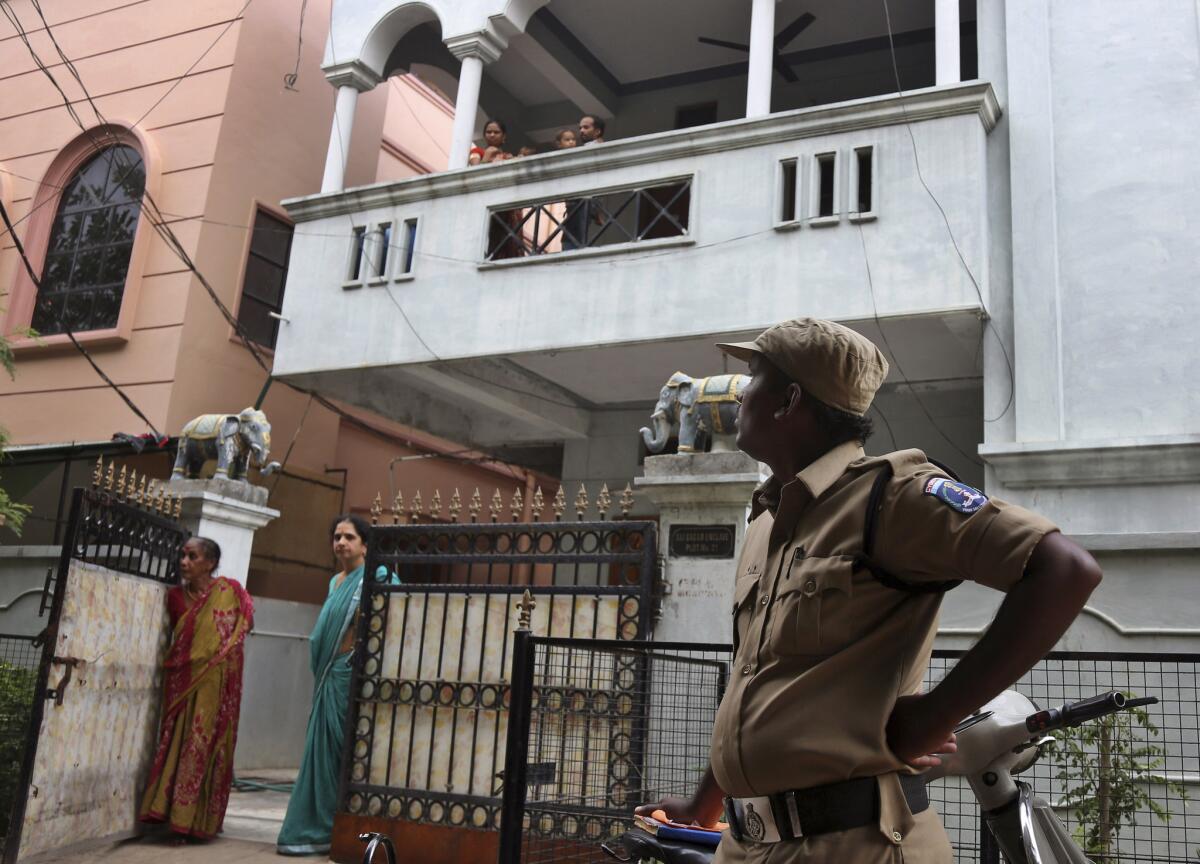Indians missing in Libya; suspicion falls on Islamic State

An Indian police officer stands outside the Hyderabad residence of one of the Indian nationals who went missing in the Libyan city of Sirte on July 30.
- Share via
reporting from Mumbai, India — The Indian government said Friday that four of its citizens had been abducted in Libya from an area reportedly controlled by the Islamic State extremist group.
Two of the four were later released and brought back to the University of Sirte, the Indian foreign minister said.
Foreign Ministry spokesman Vikas Swarup said the Indians went missing Thursday night in Sirte, a Mediterranean port city that was the hometown of the late Libyan strongman Moammar Kadafi. Suspicion immediately fell on Islamic State, which claims to have seized Sirte from Libyan militias.
Three of the men were teaching at the University of Sirte, and the fourth is an employee at the university, the Foreign Ministry said, adding that it had contacted the men’s families.
The Iraq- and Syria-based Islamic State has capitalized on the anarchy following Kadafi’s fall to gobble up wide swaths of territory in Libya. The militant group has posted online videos purporting to show the beheadings of captive African Christians.
Like many countries, the Indian government advised its citizens last year to leave Libya because of ongoing violence. Thirty-nine Indians remain missing in Iraq since last summer, when Islamic State forces seized large parts of the country.
The disappearances came days after the publication of a document reportedly written by Islamic State in which the group said it was preparing for a major attack against India, with the aim of provoking a direct conflict with the United States. USA Today, which first published the document, said it was obtained in Pakistan’s tribal belt.
Parth M.N. is a special correspondent.
For more news from South Asia, follow @SBengali on Twitter
More to Read
Sign up for Essential California
The most important California stories and recommendations in your inbox every morning.
You may occasionally receive promotional content from the Los Angeles Times.









